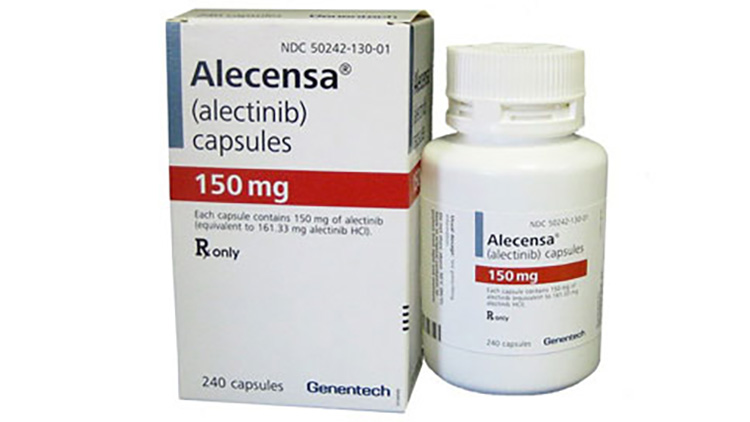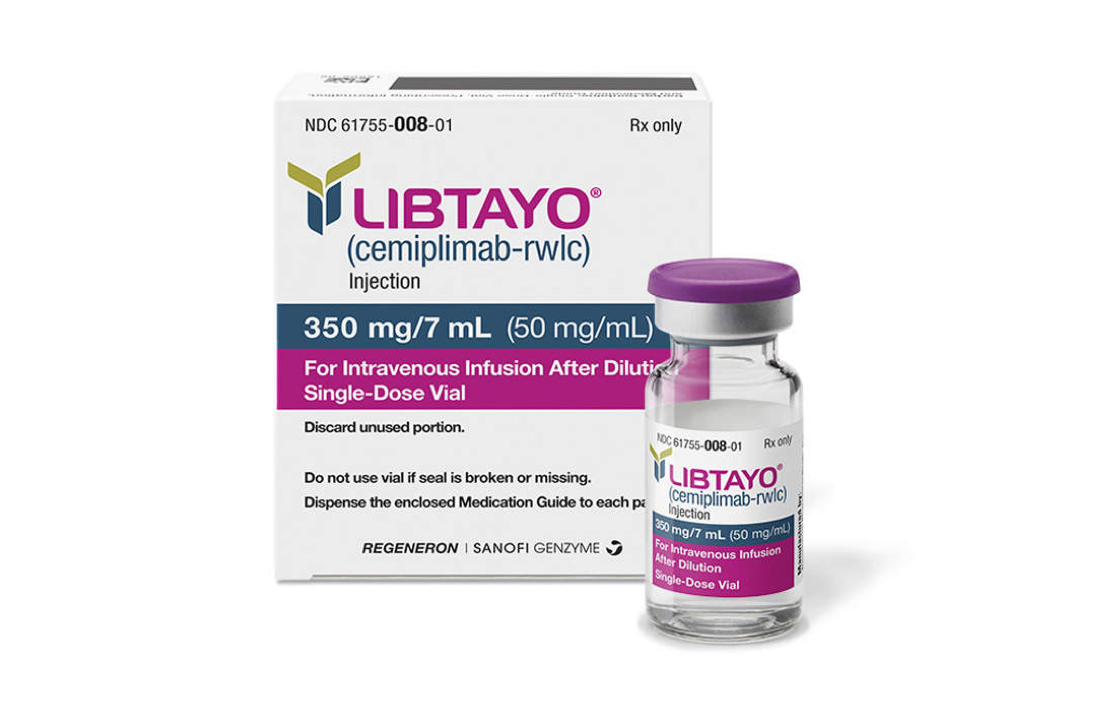Alecensa (alectinib) vs Libtayo (cemiplimab)
Alecensa (alectinib) vs Libtayo (cemiplimab)
Alecensa (alectinib) is an oral medication specifically approved for the treatment of ALK-positive non-small cell lung cancer (NSCLC), working by targeting and inhibiting the activity of the ALK protein which can drive cancer growth in these patients. Libtayo (cemiplimab), on the other hand, is an injectable immunotherapy drug approved for the treatment of certain types of cutaneous squamous cell carcinoma (CSCC), basal cell carcinoma (BCC), and non-small cell lung cancer (NSCLC) with high PD-L1 expression, functioning by enhancing the body's immune response against cancer cells. The choice between Alecensa and Libtayo would depend on the specific type of cancer a patient has, its molecular markers (like ALK or PD-L1), and the overall health and treatment plan as determined by their healthcare provider.
Difference between Alecensa and Libtayo
| Metric | Alecensa (alectinib) | Libtayo (cemiplimab) |
|---|---|---|
| Generic name | Alectinib | Cemiplimab |
| Indications | Non-small cell lung cancer (NSCLC) with ALK-positive tumors | Cutaneous squamous cell carcinoma (CSCC), basal cell carcinoma (BCC), and non-small cell lung cancer (NSCLC) |
| Mechanism of action | ALK inhibitor | PD-1 blocking antibody |
| Brand names | Alecensa | Libtayo |
| Administrative route | Oral | Intravenous |
| Side effects | Fatigue, constipation, edema, myalgia, anemia | Fatigue, rash, diarrhea, musculoskeletal pain |
| Contraindications | Hypersensitivity to alectinib or excipients | Hypersensitivity to cemiplimab or excipients |
| Drug class | Tyrosine kinase inhibitor | Monoclonal antibody |
| Manufacturer | Genentech (Roche) | Regeneron Pharmaceuticals, Inc. |
Efficacy
Alecensa (Alectinib) Efficacy in Treating Lung Cancer
Alecensa (alectinib) is an oral medication specifically designed to target and treat non-small cell lung cancer (NSCLC) that is anaplastic lymphoma kinase (ALK)-positive. Its efficacy in lung cancer has been demonstrated in several clinical trials. Alectinib works by inhibiting the activity of the ALK protein, which can drive the growth of tumors in ALK-positive NSCLC patients. In a pivotal trial known as the ALEX study, alectinib was compared to crizotinib, another ALK inhibitor, in untreated advanced ALK-positive NSCLC. The results showed that alectinib significantly improved progression-free survival, with a median progression-free survival of 34.8 months compared to 10.9 months for crizotinib, marking a substantial improvement in delaying disease progression.
Furthermore, alectinib has shown high efficacy in controlling central nervous system (CNS) metastases, which is a common complication in ALK-positive NSCLC. In clinical trials, alectinib demonstrated a lower incidence of CNS progression compared to crizotinib, highlighting its ability to penetrate the blood-brain barrier effectively. This is particularly important for improving the quality of life and survival outcomes for patients with CNS involvement.
Libtayo (Cemiplimab) Efficacy in Treating Lung Cancer
Libtayo (cemiplimab) is a relatively newer treatment option approved for certain patients with non-small cell lung cancer (NSCLC). Cemiplimab is a type of immunotherapy known as a checkpoint inhibitor, specifically targeting the PD-1/PD-L1 pathway that some cancer cells use to evade the immune system. In clinical trials, cemiplimab has shown efficacy in treating NSCLC with high PD-L1 expression. The EMPOWER-Lung 1 trial demonstrated that cemiplimab significantly improved overall survival and progression-free survival in patients with advanced NSCLC with a PD-L1 expression of at least 50% and without EGFR, ALK, or ROS1 aberrations when compared to chemotherapy.
The use of cemiplimab in NSCLC represents an important advancement in the field of immuno-oncology, offering a new line of defense for patients with high PD-L1 expression. Its efficacy has been particularly noted in extending the lives of patients who have historically had limited treatment options. As with all cancer therapies, the efficacy of cemiplimab can vary depending on individual patient characteristics, including biomarker status, and should be considered within the broader context of a patient's treatment plan.
Regulatory Agency Approvals
Alecensa
-
European Medical Agency (EMA), European Union

-
Food and Drug Administration (FDA), USA

-
Health Canada

-
Pharmaceuticals and Medical Devices Agency (PMDA), Japan

-
Therapeutic Goods Administration (TGA), Australia

-
Medsafe (NZ)

Libtayo
-
European Medical Agency (EMA), European Union

-
Food and Drug Administration (FDA), USA

-
Health Canada

Access Alecensa or Libtayo today
If Alecensa or Libtayo are not approved or available in your country (e.g. due to supply issues), you can access them via Everyone.org.
How it works

Make an enquiry
Choose the medicine you want to buy, answer a couple of questions, and upload your prescription to speed things up. We’ll get back to you within 24 hours.


Make an enquiry
Choose the medicine you want to buy, answer a couple of questions, and upload your prescription to speed things up. We’ll get back to you within 24 hours.


Breeze through the paperwork
We'll guide you through the required documents for importing unapproved medicine, ensuring you have all the necessary information.


Get a personalized quote
We’ll prepare a quote for you, including medicine costs and any shipping, administrative, or import fees that may apply.


Receive your medicine
Accept the quote and we’ll handle the rest - sourcing and safely delivering your medicine.

Some text on this page has been automatically generated. Speak to your physician before you start a new treatment or medication.
Let's talk
If you have any questions, call us or send us a message through WhatsApp or email:
Contact us




